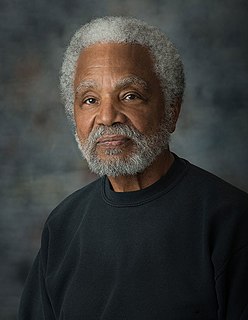A Quote by Steven Pinker
Morality comes from a commitment to treat other as we wish to be treated, which follows from the realization that none of us is the sole occupant of the universe.
Related Quotes
There was something formless and perfect before the universe was born. It is serene. Empty. Solitary. Unchanging. Infinite. Eternally present. It is the mother of the universe. For lack of a better name, I call it the Tao. It flows through all things, inside and outside, and returns to the origin of all things. The Tao is great. The universe is great. Earth is great. Man is great. These are the four great powers. Man follows the earth. Earth follows the universe. The universe follows the Tao. The Tao follows only itself.
I do know how to treat people and that is treat them the way I want to be treated. So when I extend that respect and that consideration that I would like to have, there is a certain amount of reciprocating. Some of the senators have even said words to the effect to me of "I can't dislike you as much as I wish that I did".
Whatever efforts one may make, one must revert to the realization that religion is the real basis of morality; religion is the real and perceptible purpose within us, which alone, can turn aside our attention from things. ... The science of morality can no more teach human beings to be honest, in all the magnificence of this word, than geometry can teach one how to draw.
The hypothesis I wish to advance is thatthe language of morality is ingrave disorder.... What we possess, if this is true, are the fragments of a conceptual scheme, parts of which now lack those contexts from which their significance derived. We possess indeed simulacra of morality, we continue to use many of the key expressions. But we have--very largely if not entirely--lost our comprehension, both theoretical and practical, of morality.
My version of relativism is pluralistic and attributes functions to morality that in combination with human nature place limits on what could count as a true morality. Unlike many other relativists, I do not hold that people are subject to a morality because they all belong to a certain group. That is, I don't hold that being a member of a group makes one's subject to some set of generally accepted norms. What is true is that others around us teach us morality and moral language, so they inevitably influence us.
We had enough years in front of us to be serious and grown-up and respectable. Why rush it? But on the other hand we always complained when teachers and other adults treated us as kids. In fact there was nothing that annoyed me more. So it was a frustrating situation. What we needed was a two-sided badge that said 'Mature' on one side and 'Childish' on the other. Then at any moment we could turn it to whatever side we felt like being and the adults could treat us accordingly.





































